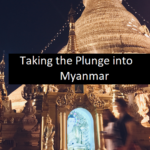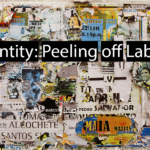The Value of Social Impact Consulting in a COVID-19 World

Reading Time: 5 minutes
This article originally appeared on Medium and LinkedIn and has been re-posted with consent from the author.
I’ve been thinking about my friends, classmates, and members of my professional network for whom COVID-19 has made employment precarious, with many having to deal with indefinite hiring freezes, rescinded job offers, temporary furloughs or job loss.
Yet, and particularly with the onset of the virus, my inbox has been inundated with consultancies in the development sector. Consultancies looking for health professionals, supply chain and logistics experts, project managers, strategists — to name a few — to implement initiatives combating COVID-19.
I was catching up with a friend and classmate from the Oxford MBA, Matthew Morgan. He mentioned that he had been working remotely with a team of our classmates on short-term consulting projects in the social impact sector.
I thought it would be useful to get the group together and talk through their experiences working as consultants in social impact, while they navigate full-time employment in a particularly difficult job market (though some are now considering full-time careers in social impact consulting!).
The Team
For the last six months, Matthew Morgan has been leading a team of Oxford MBAs from the class of 2018 — Omar El Naggar, Daniela Florentina Gheorghe, Sergio Navarro, and Caroline Dupraz — implementing a series of consulting projects with Astarita, Aldrich, and Ward (AAW) — a global consulting firm that helps provide solutions for international not-for-profits and charities.
The projects
Together, they have worked with international humanitarian relief organisations to create market entry, investment and fundraising strategies in Romania, Egypt, and Uruguay; assisted a global charity to benchmark their level of emergency funding relative to other organisations; and helped a leading organisation aiding refugees on their individual donor strategy.
In the coming months, the team is set to work with a disability rights organisation on global market research, provide a digital fundraising solution to an international disaster relief movement, and implement a marketing and communication strategy for a social mobility foundation.
Making a Switch to a Career in Social Impact Consulting
For Omar, who comes from an investment banking career, the experience has been eye-opening. Omar, who is from Egypt, had the experience of learning more about the social impact sector through a consulting project in Egypt that involved an in-country visit. “I’m particularly struck by the high calibre of professionals, the passion and commitment of those we work with, and the size, depth, and complexity of the social impact sector”, he said.
Recognising the importance of consultants in this era, Omar believes that, “Consultants now will be needed more than ever, and will have the opportunity to participate in organisations’ responses against the virus, while being a witness to the transformation of entire industries.”
However, despite a consulting lifestyle offering flexibility, it also comes with challenges. “The biggest challenge in consulting is building track record and credibility. Matthew pushed us to hit-the-ground running and achieve this quickly, which is why we have been able to originate new projects. Usually this takes time,” Omar said.
For Caroline, this experience has been pivotal in motivating her to build a career in social impact.
“Having come from the food and beverage sector, I am keen on contributing to building a more sustainable food system. I believe that in the long-run, it will take tri-sector leadership to rethink our system in order to feed the projected 10 billion people on earth in 2050,” she says.
The Value of an Oxford MBA
The MBA program at Saïd Business School, Oxford University, represents diverse professions and nationalities. Some students have gone through multiple professions or lived in several countries before the MBA. Sergio, for instance, used his professional skillset which combined engineering and healthcare expertise, and the business skills and perspective on impact developed through the Oxford MBA, to approach the consulting projects that he worked on with a multi-dimensional perspective.
“Whether building a funding model that is responsive to the economic and societal impacts of a global pandemic or in mapping the healthcare ecosystem of a Latin American country, we are using the strategies taught to us in the Global Threats and Opportunities (GOTO) course at Saïd Business School as well as those mastered prior to the MBA,” said Sergio.
Matthew underscores the applicability of the MBA at Oxford in the work that he is currently doing. “The experience has made me realize how applicable the Oxford MBA curriculum is in the context of COVID-19. The notion of responsible business and corporate citizenship that Saïd Business School advocates has become all the more relevant, where a multi-stakeholder model may very well become the norm,” he says.
On the Need for Cross-Sectoral Collaboration
“Half a year after Matthew initially reached out for the first project, we have now grown to a team of six bridging the gap between the traditional private sector, the not-for-profit, and the social enterprise sectors,” said Daniela.
“We come from different work cultures, styles of leadership and expertise, but we all have the same goal in mind: to deliver the best we can as a team in solving a pressing social problem,” says Daniela. She has used this experience in consulting to reach out to new clients in Asia and Africa who may require the consulting services of the group — businesses that are looking for new revenue streams, or want to support under-served individuals and small businesses in emerging markets affected by the virus.
Matthew believes that, “Collaboration is critical in personal and professional contexts in this environment. Personally, I try to call the elevator back up for others and seek to combine talented individuals representing diverse views towards a sum of the whole that is more valuable than the independent parts.”
Caroline thinks that the team benefits immensely from diversity of thought, which Oxford did a good job of cultivating, not only through coursework at the business school but also via the Oxford Union, and through college life. “I think it’s more important than ever,” she feels.
Coming Up Next
The team is currently at different points of involvement in consulting. Some are focusing their efforts on consulting full-time and building up a future pipeline of projects. Others, while bringing their specialised knowledge to specific projects, are also volunteering and exploring other avenues to contribute and develop a new career path. And some view this as a temporary opportunity to do something meaningful before starting full-time employment later this year.
“The experience has been nothing short of fulfilling and exhilarating,” said Matthew. For now, Matthew says he is, “remaining flexible and optimistic of future opportunities but taking each week as it comes — it’s the best approach to take given the current environment that is pushing us all out of our comfort zones and making us rethink the way we approach employment.”
Looking for a talented group of consultants, wanting to learn more about a career in social impact consulting, or searching for insights into navigating professionally turbulent times? Feel free to reach out to the team: Caroline Dupraz, Daniela Florentina Gheorghe, Matthew Morgan, Omar El Naggar, Sergio Navarro
The author and moderator of the panel is an associate at the CDC Group, the UK’s Development Finance Institution. Having worked in the development sector in South and Southeast Asia, she is passionate about international development. She is also inspired by her classmates foraying into social impact at a time when their need and relevance could not be more pertinent.



